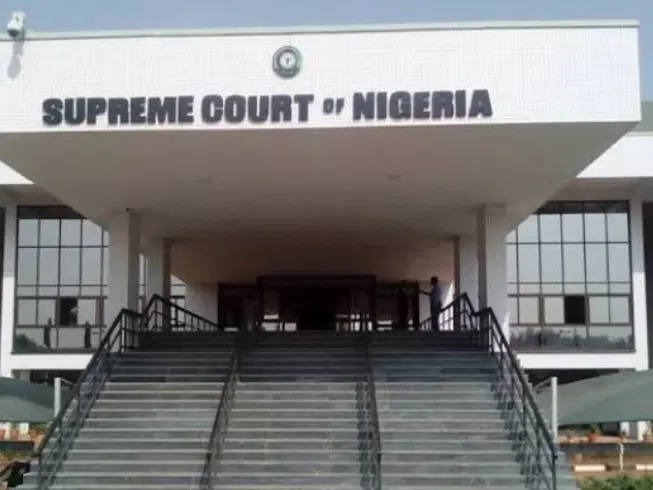
By Henry Ojelu & Deborah Oladeji
The Lagos State Government has warned the National Assembly against proceeding with the proposed Central Gaming Bill, describing it as a direct violation of the Nigerian Constitution and a subsisting judgement of the Supreme Court.
Attorney-General and Commissioner for Justice, Mr. Lawal Pedro, SAN, gave the warning at a press briefing in Lagos, saying the Bill, now before the Senate after passage by the House of Representatives, amounts to legislative overreach and a potential trigger for constitutional crisis.
Pedro explained that the Bill, which seeks to regulate all forms of online and remote gaming across the country, directly contradicts a Supreme Court judgement delivered on October 13, 2024, in a suit filed by Lagos State and 22 other states against the Attorney-General of the Federation.
According to him, the apex court had ruled unequivocally that gaming, lotteries and betting are residual matters within the exclusive jurisdiction of state governments, except in the Federal Capital Territory.
“The Supreme Court, our apex court, has declared that the power to regulate gaming, betting and lotteries belongs solely to the states. The National Assembly lacks the competence to legislate on these matters for the entire country,” Pedro stated.
He added that the court also granted a perpetual injunction restraining the Federal Government and its agencies from enforcing the National Lottery Act or any similar legislation within the territory of any state.
Pedro warned that the proposed Bill, if passed, would not only defy this ruling but also undermine the foundation of Nigeria’s federal structure.
“Any attempt to legislate again on the same subject amounts to defiance of the Supreme Court, a violation of the Constitution and an invitation to constitutional chaos,” he said.
The Attorney-General also faulted claims by some lawmakers that online or remote gaming falls under federal jurisdiction because of its cross-border nature.
He said: “Online does not mean federal. If online activity automatically becomes federal, then the United Nations should regulate it globally. The use of technology does not alter the legal character of gaming, which remains a state matter whether done physically or virtually.”
Pedro further cautioned that the proposed Central Gaming Bill could open the floodgates of gambling activities even in states where cultural or religious values prohibit such practices.
“If the Bill becomes law, it will allow operators to set up gaming businesses across all states, including those where gambling is forbidden by religion or tradition. This could create social tension and conflict,” he warned.
He described the National Assembly’s move as inconsistent with its current nationwide consultation efforts aimed at devolving more powers to subnational governments.
“It will be a contradiction of spirit and purpose for the same National Assembly that is canvassing devolution of powers to now attempt to reclaim powers already affirmed by the Supreme Court to belong to the states,” he said.
Pedro reaffirmed Lagos State’s commitment, alongside 22 other states, to resist any legislative or executive action that undermines the integrity of the Supreme Court and the autonomy of state governments.
“This is not about Lagos State alone,” he said. “It is about Nigeria, about protecting the integrity of the Supreme Court and preserving the federal structure as guaranteed by the Constitution.”
He urged the National Assembly to withdraw the proposed Central Gaming Bill in the interest of constitutional order and national stability.
“The rule of law is the soul of democracy.Our democracy will remain strong only if we respect the Constitution and the finality of Supreme Court decisions,” Pedro concluded.
Source; Vanguard News
